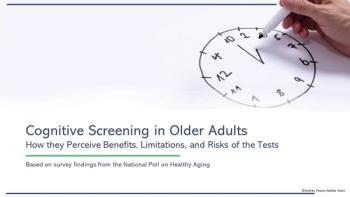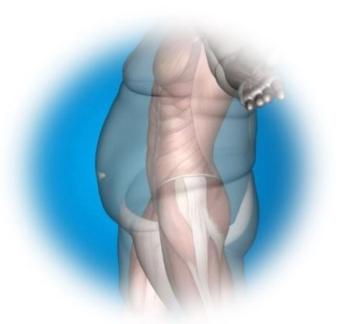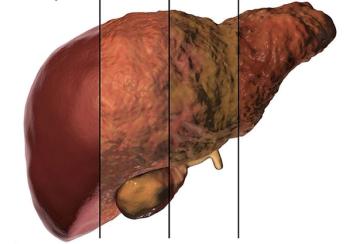
Physiatrist DJ Kennedy, MD, is excited by the potential for new, and even existing technology, to present novel options for diagnosis, monitoring, and treatment.

Physiatrist DJ Kennedy, MD, is excited by the potential for new, and even existing technology, to present novel options for diagnosis, monitoring, and treatment.

In adults with obesity or overweight plus comorbidities but without T2D once-weekly tirzepatide was associated with significant and durable weight loss vs placebo.

No aspirin for healthy elders, Vegan diets vs CVD, Opioids deadly in dementia, plus BP patterns in babies, and the fear of Alzheimer's runs deep.

A daily dose of clinical news on Patient Care you may have missed.

A new analysis of the ASPREE trial of aspirin for primary prevention in older adults finds a poor risk-benefit ratio for prevention of stroke.

A majority of older adults agree that all aged ≥65 years should be screened annually for dementia; more than half significantly fear a positive result, the National Poll on Healthy Aging reports.

Reductions in LDL-C, HbA1c, and body weight were associated with a variety of vegetarian diets in participants with or at high risk for cardiovascular disease.

A daily dose of clinical news you may have missed.

Methods proven to prevent ASCVD may fall short in certain populations if the impacts of SDOH are not closely monitored. The ACC/AHA provide considerations for 7 health domains.

When is a primary care patient with back pain ready for referral to PM&R? No formulas available but basic principles hold true and earlier is always better.

A daily dose of clinical news you may have missed.

The real-world analysis measured the benefit of primary vaccination and of a booster and found the latter dependent upon local disease incidence and risk for severe disease.

Recurrent back pain is common, so teaching patients how to stay strong and flexible—and also when to get help—is essential, says Vanderbilt physiatrist DJ Kennedy, MD.

The highest risk of mortality among a Danish population with dementia occurred within 2 weeks of an opioid prescription but remained significant at 180 days.

A daily dose of clinical news you may have missed.

Exercise pattern doesn't matter, just do it; self-diagnosis by social media; food will do when statins don't; plus portable T2D therapy and who really gets anticoagulation?

Gen Z is most likely to use social media to self diagnose and YouTube is the top platform for diagnosis content; there is so much more to learn from this survey.

The challenge posed by a complaint of back pain is not that the origin is unknowable but rather the remarkable heterogeneity in this condition, says the president-elect of the American Academy of Physical Medicine & Rehabilitation.

Disparities in emergency routing persisted despite women being acutely sicker than men and living the same distance from a comprehensive stroke center, in a Houston, Tx study.

Total perioperative dosage of opioids was higher for abdominal vs laparoscopic hysterectomy, but procedure route was not associated with risk for long-term opioid use.

Nirsevimab won unanimous support from the FDA AMDAC on the vaccine's positive benefit/risk profile to prevent RSV in newborns and infants in their first RSV season.

Primary care clinicians will need to be particularly alert for signs of long COVID in older patients as some signs and symptoms may be easily attributed to the aging process.

Factors positively associated with a timely first OAC Rx among the 41.3% who received one included male sex, certain comorbidities, other current medications, and obesity.

For the 25-30 million uninsured adults in the US, the program, which will end in December 2024, will ensure access to protection from the virus for another year.

AspyreRx™, prescribed in 90-day increments, resulted in a mean HbA1c reduction of 1.3% at 180 days in 1 out of 2 phase 3 trial participants. A Q4 launch is anticipated.

Is BMI or body fat a better estimate of obesity?; spoiler: older women do drink ETOH; USPSTF vs ACC/AHA; plus no more opioids for LBP and a primer on migraine meds.

In Israel, where 60% of adults are overweight, new research prompts investigators to suggest that % body fat should replace BMI as the gold standard measure of obesity.

In patients with NAFLD, type 2 diabetes was found to be an independent predictor of both hepatic decompensation and incident HCC, according to meta-analysis authors. .

The expanded indication widens the patient population eligible for the novel siRNA therapy to include high-risk patients on maximum statin Rx who have not had a CV event.

For older adults who feel limited by physical changes associated with aging, physiatry can help maintain strength and flexibility along a continuum of primary care.